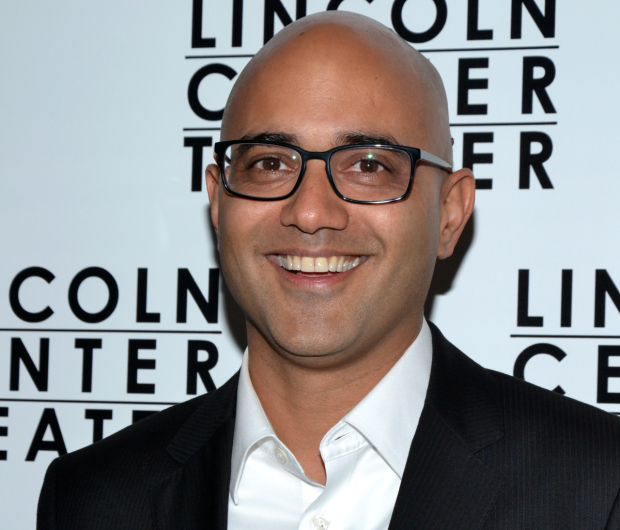Ayad Akhtar Is Bringing Racial Tension to Washington, DC — and to a Theater Near You
Ayad Akhtar, Pulitzer Prize winner for Disgraced, is the most produced playwright in America this season, and he swears he didn't see it coming.
"If you told me that five years ago, I'd be like, 'You're crazy. That is never gonna happen,'" the playwright insists. Having penned plays that focus on racial tension and Islamophobia, he continues, "I wasn't writing in a way that I expected to be the most produced anything."
Nevertheless, he says, it's a dream come true. Akhtar is elated that his shows have played at acclaimed regional theaters like the Goodman, Berkeley Rep, and Seattle Rep and that they'll soon be onstage at the McCarter and the Guthrie. And right now, he's pleased to report that Timothy Douglas is directing Disgraced at Washington, D.C.'s Arena Stage.
As part of its American Voices New Play Institute, Arena is also awarding Akhtar a yearlong residency that will provide him with salary, health benefits, and funds to support the process of developing a new play. But it's the interpersonal aspect of the residency that Akhtar is most excited about. "It gives me a chance to get to know an institution," he says. "There's a lot that can happen when you really know everyone who's working at a theater. It makes it easier to become part of the life of that theater."
During a recent phone call from London, where Akhtar's The Invisible Hand is in rehearsals at the Tricycle Theatre (his work is popular internationally as well), the playwright also discussed giving audiences their money's worth, drawing on his Punjabi heritage, and writing about a "pretty ugly world."

(© David Gordon)
What does this residency at Arena mean for you?
I'm really excited about that place. That space that they've built, the Mead Center, it's like this cross between the Tate Modern and the National Theater in London. I mean it's just this extraordinary space. It's amazing what [artistic director] Molly [Smith] is doing. The commitment to political theater. She's really taking some big cracks at the plate. And it just feels like, what an exciting place to be in the American theater. It's been an exciting proposition, and I'm looking forward to having the opportunity, having the time and resources to work on a new play.
You're the most produced playwright in America this season. Why do you think your plays have hit such a nerve?
It's quite a counterintuitive thing to have happened. I think that the work I'm doing doesn't shy away from the world that exists out there right now. I don't think I'm writing plays that are a refuge or a comment on that world — they are literally an embodiment of that world in some way. This is what real people are doing out in the real world. These are the things that people are saying about each other, whether it's on Facebook or at the local gas station. It feels to me like the work is engaged with the pretty ugly world that is out there right now.
What gives you the ability to tap into that rawness in a way that feels real to people?
I don't know. I've thought about it a lot. You know I come from a Punjabi family and Punjab is the southern – [we're like] the Southern Italians of India: very loud and histrionic. It's not like WASP culture where you hide what you feel. It's sort of just all out there. Maybe that has something to do with it.
Also, I don't like to be bored in the theater. I don't want to have to interpret what I'm watching. I think it's nice for there to be multiple possibilities of interpretation, but I like to be able to experience something that actually feels like it's happening. I didn't choose to write that way. It just happened. But I think that for a lot of audiences, it seems to me they'll walk away from my work feeling at least they got their money's worth. Even if they didn't like it, at least they got an experience.
What aspect of Disgraced are you particularly excited to see Arena director Timothy Douglas take on?
I've found that if there is a sector of the audience that seems to resonate [with] and understand the deeper emotional nuances of this play, intuitively, it's the African-American audience. What I'm so excited about, and this is something that Timothy and I did discuss, is that the perspective he brings as an African-American I feel informs the play in a way that is really exciting. Dealing with the psychological ramifications of race in American is something that African-Americans have been dealing with for many, many generations. It's new for Muslim Americans.
What discussions do you hope that you're generating with audiences around the U.S.?
When I was at the Goodman, like 500 people stayed after the show. And in Toronto — Raoul Bhaneja, the guy who produced and starred in the show, wrote me an email and said 500 people a night would stay after to talk about the show. I'm like, "What are they talking about?" I do find it quite remarkable that people feel like they've got something to say after watching it.

(© C. Stanley Photography)











